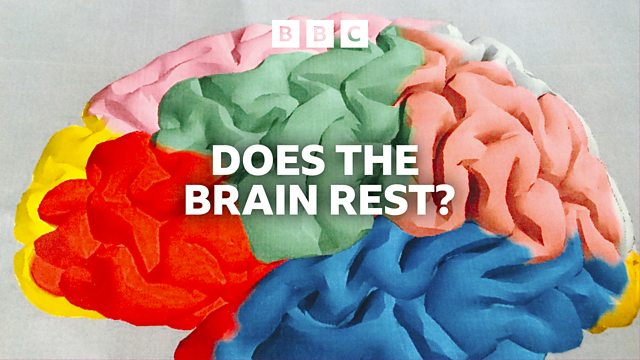Does the brain rest?
Claudia Hammond finds out what rest means in the modern world. What happens in the brain when we mind wander? Neuroscience suggests mind wandering is good for us.
Sit down, relax and think of nothing. Struggling? There might be a good reason why your mind seems to wander even when you try very hard to switch off: your brain never really rests. And contrary to popular belief, those idle daydreams might even be beneficial. For years, neuroscientists worked on the assumption that our brains work hard when given a specific job to do, and switch off when we're not mentally stimulated. This is why you'll read about experiments in which volunteers perform a task - tapping a finger, performing some mental arithmetic, looking at evocative pictures - while their brain is scanned. The scan reveals which parts of the brain become more active during the task and which become less active.
But neuroscientists were surprised to discover that when the brain is supposedly resting it's actually more active. This suggests that day dreaming, or mind wandering as psychologists call it, must have a purpose. Claudia Hammond travels to Leipzig to discover what neuroscientists are finding about how the brain at rest uses energy and the links to creativity.
Image: Daniel Margulies, Max Planck Research for Neuroanatomy & Connectivity.
Last on
More episodes
Broadcasts
- Tue 20 Sep 2016 09:00大象传媒 Radio 4
- Tue 20 Sep 2016 21:30大象传媒 Radio 4
The ten most restful activities
The Rest Test asked people which activities they found most restful. Here's the top ten.

